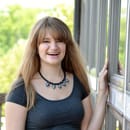During my sophomore year of college, I took a class entitled “Multi-Cultural Literature.” Besides that fact that class fulfilled one of my core requirements for graduation, I chose to take that class because I thoroughly enjoy reading diverse novels on issues of social justice. I never expected to take as much away from the class as I did, nor did I expect to work with titles that would become some of my favorite books of all time.
Ta-Nehisi Coates’ Between the World and Me
In Between the World and Me, Coates addresses one of his most pressing concerns for his son – how can one navigate the world as a vulnerable, black body. Coates understands that as a parent, it is his responsibility to inform his son that the police and the criminal justice system ultimately have more control and power over the black body than the black man himself. Throughout the novel, Coates continually points to the family as a vehicle through which black youths learn how they need to interact with society in order to protect their bodies. The tight grip of his mother’s hand when they crossed the street, the sharp pain of his father’s belt when he misbehaved – these were the ways in which Coates’ parents first introduced him to the harsh realities of society.
This novel provided me with the opportunity to learn in-depth about many of the adversities that threaten to damage the black body in our society. Coates allowed me to step into his shows, in order to try to understand how he must do everything in his power to adequately prepare his son to face the brunt of a white man’s world.
Moisés Kaufman and the Tectonic Theater Project’s The Laramie Project
In The Laramie Project, the residents of Laramie, Wyoming are forced to come to terms with how and why the hate-spurred murder of a gay man occurred in their community. Some residents feel that the victim, Matthew Shepard, brought the violence upon himself by “flaunting” his sexuality and purposefully taunting straight men, supporting the idea that the victim can be held responsible for crimes against himself. Other residents only place some of the blame onto Shepard, chalking up his unfortunate fate to being in the wrong place at the wrong time. Only a few residents placed some of the blame for what happened onto themselves.
The Laramie Project is based on hundreds of interviews that the theater company members conducted with actual Laramie community members. As I read the play, I found myself struggling with how and where to place blame for Shepard’s murder. Obviously, the two attackers who chose to act on their prejudice need to be accountable for their actions but, in a way, isn’t the whole community of Laramie responsible for accepting those undertones of hate?
Toni Morrison’s The Bluest Eye
Morrison examines how society’s obsession with female beauty and virginity can lead to the corruption of a woman’s body. The young female characters in this novel lack sexual maturity, due in part to their parent’s refusal to teach them about sexuality. When Frieda is fondled by Henry Washington, she is prematurely forced into becoming a sexual being. Henry takes advantage of his position of physical and emotional power over Frieda to get what he wants. Frieda understands that Henry’s actions were inappropriate based on the reactions of her parents but she is unable to understand that these actions constituted unwanted sexual attention. Instead, Frieda is left struggling with the fear of being “ruined” like the local prostitutes whom her mother continuously condemns.
While reading this novel, I was struck by the pervasive assumption that women’s bodies are available for abuse. The male characters are clearly the product of a society which trains men to take what they want when they want it, often without consequence. It was moving and heart-breaking to consider just how much the exploitation portrayed in the novel mirrors the real-life dangers of being a woman.
These three books taught me a lot about myself, the way in which I perceive the culture that I live in and the way that people who are different from me perceive the culture we live in. I would definitely recommend that anyone looking to expand their cultural horizons should consider reading these novels.


